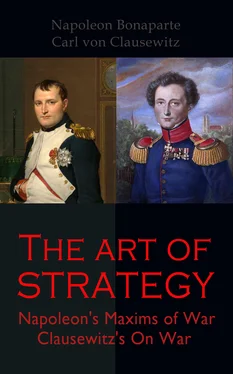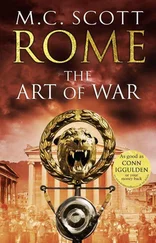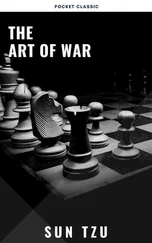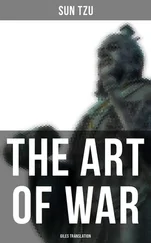But supposing a general-in-chief to receive positive order from his sovereign, directing him to fight a battle, with the further injunction, to yield to his adversary, and allow himself to be defeated—ought he to obey it? No. If the general should be able to comprehend the meaning or utility of such an order, he should execute it; otherwise he should refuse to obey it.
In the campaign of 1697, Prince Eugene caused the courier to be intercepted, who was bringing him orders from the emperor forbidding him to hazard a battle, for which everything had been prepared, and which he foresaw would prove decisive. He considered, therefore, that he did his duty in evading the orders of his sovereign; and the victory of Zanta, in which the Turks lost about thirty thousand men, and four thousand prisoners, rewarded his audacity. In the meantime, notwithstanding the immense advantages which accrued from this victory to the imperial arms, Eugene was disgraced on his arrival at Vienna.
In 1793, General Hoche, having received orders to move upon Treves with an army harassed by constant marches in a mountainous and difficult country, refused to obey. He observed, with reason, that in order to obtain possession of an unimportant fortress, they were exposing his army to inevitable ruin. He caused, therefore, his troops to return into winter quarters, and preferred the preservation of his army, upon which the success of the future campaign depended, to his own safety. Recalled to Paris, he was thrown into a dungeon, which he only quitted on the downfall of Robespierre.
I dare not decide if such examples are to be imitated; but it seems to me highly desirable that a question so new and so important, should be discussed by men who are capable of determining its merits.
Table of Contents
The first qualification in a general-in-chief is a cool head—that is, a head which receives just impressions, and estimates things and objects at their real value. He must not allow himself to be elated by good news, or depressed by bad.
The impressions he receives either successively or simultaneously in the course of the day, should be so classed as to take up only the exact place in his mind which they deserve to occupy; since it is upon a just comparison and consideration of the weight due to different impressions, that the power of reasoning and of right judgment depends.
Some men are so physically and morally constituted as to see everything through a highly-colored medium. They raise up a picture in the mind on every slight occasion, and give to every trivial occurrence a dramatic interest. But whatever knowledge, or talent, or courage, or other good qualities such men may possess, nature has not formed them for the command of armies, or the direction of great military operations.
“The first quality in a general-in-chief,” says Montécuculli, “is a great knowledge of the art of war. This is not intuitive, but the result of experience. A man is not born a commander. He must become one. Not to be anxious; to be always cool; to avoid confusion in his commands; never to change countenance; to give his orders in the midst of battle with as much composure as if he were perfectly at ease. These are the proofs of valor in a general.
“To encourage the timid; to increase the number of the truly brave; to revive the drooping ardor of the troops in battle; to rally those who are broken; to bring back to the charge those who are repulsed; to find resources in difficulty, and success even amid disaster; to be ready at a moment to devote himself, if necessary, for the welfare of the state. These are the actions which acquire for a general distinction and renown.”
To this enumeration may be added, the talent of discriminating character, and of employing every man in the particular post which nature has qualified him to fill. “My principal attention,” said Marshal Villars, “was always directed to the study of the younger generals. Such a one I found, by the boldness of his character, fit to lead a column of attack; another, from a disposition naturally cautious, but without being deficient in courage, more perfectly to be relied on for the defence of a country.” It is only by a just application of these personal qualities to their respective objects, that it is possible to command success in war.
Table of Contents
The leading qualifications which should distinguish an officer selected for the head of the staff, are, to know the country thoroughly; to be able to conduct a reconnoissance with skill; to superintend the transmission of orders promptly; to lay down the most complicated movements intelligibly, but in a few words, and with simplicity.
Formerly, the duties of the chiefs of the staff were confined to the necessary preparations for carrying the plan of the campaign, and the operations resolved on by the general-in-chief, into effect. In a battle, they were only employed in directing movements and superintending their execution. But in the late wars, the officers of the staff were frequently intrusted with the command of a column of attack, or of large detachments, when the general-in-chief feared to disclose the secret of his plans by the transmission of orders or instructions. Great advantages have resulted from this innovation, although it was long resisted. By this means, the staff have been enabled to perfect their theory by practice, and they have acquired, moreover, the esteem of the soldiers and junior officers of the line, who are easily led to think lightly of their superiors, whom they do not see fighting in the ranks. The generals who have held the arduous situation of chief of the staff during the wars of the Revolution, have almost always been employed in the different branches of the profession. Marshal Berthier, who filled so conspicuously this appointment to Napoleon, was distinguished by all the essentials of a general. He possessed calm, and at the same time brilliant courage, excellent judgment, and approved experience. He bore arms during half a century, made war in the four quarters of the globe, opened and terminated thirty-two campaigns. In his youth he acquired, under the eye of his father, who was an engineer officer, the talent of tracing plans and finishing them with exactness, as well as the preliminary qualifications necessary to form a staff-officer. Admitted by the Prince de Lambesq into his regiment of dragoons, he was taught the skilful management of his horse and his sword—accomplishments so important to a soldier. Attached afterward to the staff of Count Rochambeau, he made his first campaign in America, where he soon began to distinguish himself by his valor, activity and talents. Having at length attained superior rank in the staff-corps formed by Marshal de Segur, he visited the camps of the King of Prussia, and discharged the duties of chief of the staff under the Baron de Bezenval.
During nineteen years, consumed in sixteen campaigns, the history of Marshal Berthier’s life was little else but that of the wars of Napoleon, all the details of which he directed, both in the cabinet and the field. A stranger to the intrigues of politics, he labored with indefatigable activity; seized with promptitude and sagacity upon general views, and gave the necessary orders for attaining them with prudence, perspicuity, and conciseness. Discreet, impenetrable, modest; he was just, exact, and even severe, in everything that regarded the service; but he always set an example of vigilance and zeal in his own person, and knew how to maintain discipline, and to cause his authority to be respected by every rank under his orders.
Читать дальше












